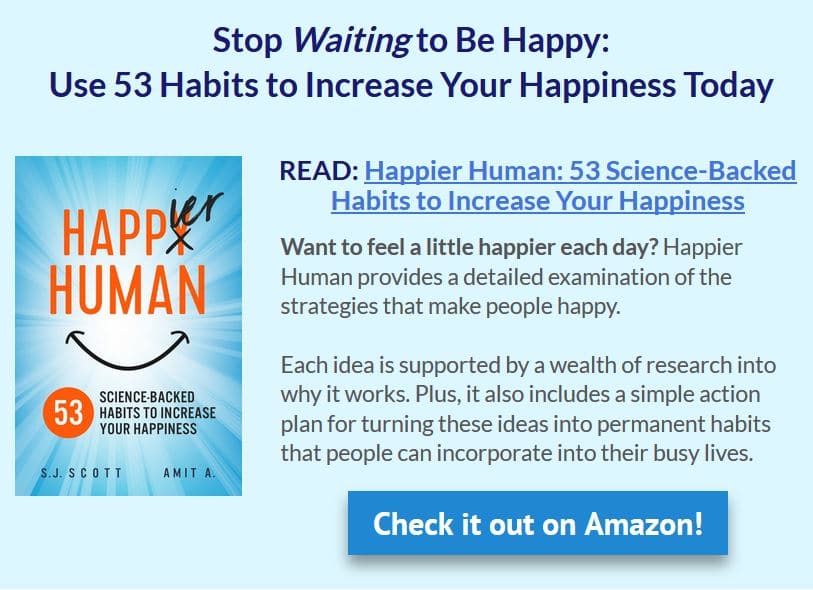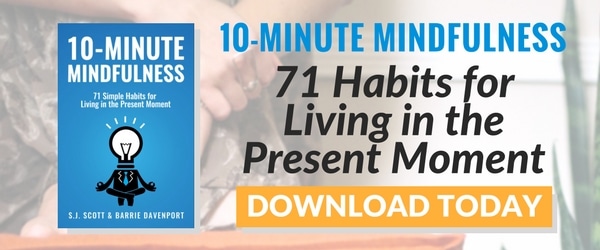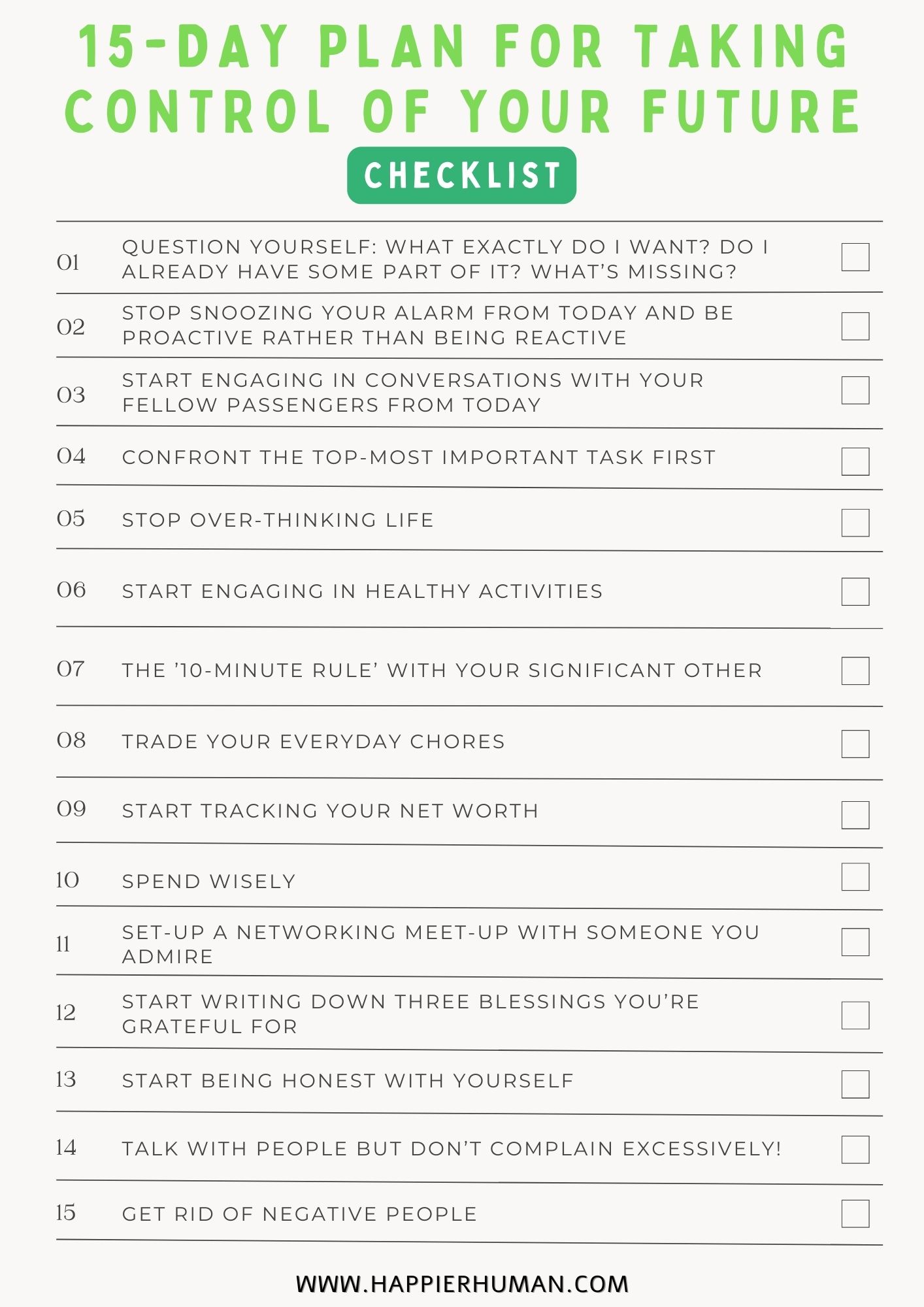There might be affiliate links on this page, which means we get a small commission of anything you buy. As an Amazon Associate we earn from qualifying purchases. Please do your own research before making any online purchase.
Are you struggling with getting your life together? Or simply want some tips on how to improve your life?
If so, then there is a proven plan to take back control and create a better future for yourself.
Stewart Friedman, in his book ‘Leading the life you want’ lays down six different life narratives to emphasize how you can live a more integrated, satisfying and meaningful life with others. According to him, the greatest dividing line between words and results is courageous action.
What we consider as getting our life together is a psychological drive to attain the state of being totally satisfied and happy. Since we all are imperfect, we can’t direct our lives to perfection and wipe out every bit of chaos that we face. So, we as human beings cannot be totally satisfied ever. Yet, what we can do is minimize the mess in our life with slight adjustments in our behavior and approach to everyday mannerisms.
Multiple aspects contribute to happiness and you cannot possibly expect to fix every aspect in a day or two. An effective approach is to control things one-by-one.
In this article, we will outline a 15-day plan you can use to get your life together. If follow this plan, you will discover that it’s not hard to find meaning and add increased happiness into your daily routine.
Let’s get to it.
Day 1: Question yourself: What exactly do I want? Do I already have some part of it? What’s missing?

Most people today are unknowingly stuck in what is described as the ‘ambition trap’. According to the New York Psychotherapist Katherine Schafler, this refers to striving to want everything, which ends up making us unhappy.
In an endless rat race, we often forget to ponder over our core wants and aimlessly lead into the path that we see everyone going. Consequently, we end up with a life that’s seriously messed up.
As a matter of fact, the more aware you are about your aspirations, the easier it’ll be to differentiate between what you like and what you ultimately want to accomplish. As human beings though, we want more of everything we feel makes us happy: more money, more fun, more food, more attention and so on.
Have we ever thought about how this tendency relates to our ultimate ambitions? Long term achievements actually define our state of happiness not these short term gains.
Begin by asking yourself the questions stated above.
Then, list down your short, medium and long- term goals. It won’t be a complicated process once you know exactly what your aspirations are.
Long-term goals would state your ultimate destination.
Medium-term goals help you monitor your progression and make sense of clusters of short-term goals. Short-term goals refer to every step that you take to move along your career and life.
Write down the answers and start moving towards your end goals from day 1. Of course, you can edit them whenever you like but the point is to have them in mind!
Day 2: Stop snoozing your alarm from today and be proactive rather than being reactive
Five minutes of extra sleep won’t fulfill the deep urge for sleeping that you feel in the morning and you’d probably have the same feeling waking up at subsequent times. Some also believe that a little bit of extra sleep could help you refresh you, but it really is the other way round.
As soon as you wake up the first time, your endocrine system starts releasing alertness hormones to start preparing for the day. But hitting the snooze button and going back to sleep slows down this process. Hence, leaving the bed promptly influences your work, keeping you comparatively more energetic.

Moreover, among the biggest hurdles to fixing up our life-long problems is our tendency to procrastinate, which means leaving things for tomorrow when we can do them today. The biggest issue with procrastination is that it piles up important tasks until we suddenly have a mountain of problems to solve. And then we feel the stress and burden which further paralyzes our abilities to resolve them, with additional tasks coming.
That’s when it feels like everything in life has fallen apart. To recover from such a dilemma, it is better that you be proactive. Accomplish tasks and take care of your responsibilities as and when they arise. Don’t wait until the last minute. Confront every challenge from the front and stay on top of everything. Planning things ahead of time is a great way to control your life and your progression.
Day 3: Start engaging in conversations with your fellow passengers from today
This one might sound a bit assertive but it’ pretty useful. According to a Journal of Experimental Psychology study in 2014, people are much happier and feel more productive on and after their commutes when they engage in lively conversations with other passengers during the travel.
Many people don’t engage in conversations with fellow passengers while commuting. This could be out of self-consciousness and the fear of being rebuked. While the chances of this happening are there, most people really do prefer to have someone talk to them to pass the time. But they don’t initiate the conversation for the same reason as you.
You’d really be doing yourself and others a great favor if you could get rid of the fear holding you back. Start talking with passengers to pull everything together!
Day 4: Confront the top-most important task first
Many times, it’s the high-priority tasks that cause stress, and then you start perceiving life to be complicated. Instead of wasting time, get to the most important task first thing in the morning. If maintaining health is your highest priority, rush to your routine physical activity as soon as you wake up.
If learning a new language is what occupies your head, spending your first half an hour practicing the language would greatly help you grasp the lingo, as your mind is not pre-occupied with other things.
In the context of work, start your day with top-priority projects. Laura Vandercam, an author and expert in the subject of time management and productivity suggests that you should select one top-priority task and schedule to work on it every day when you arrive at the office.
This allows you to invest your best in those projects as you are full of energy during the first hour. In contrast, if you don’t schedule anything for the first hour in office, you’d find yourself lost in your inbox and addressing issues that aren’t that central or urgent.
Taking this strategy to the next level, Vandercam proposes to apply this to Monday mornings when you come blank and are flooded with emails. Of course, you don’t want to miss what the boss has to say but don’t waste the entire first 60 minutes doing absolutely nothing or wasting your energy on unimportant tasks.
Day 5: Stop over-thinking life
Overthinking is among the biggest obstacles you face when wanting to fix your life. When you continue to think of how life has been cruel to you over and over again, you’ll be stuck in the same loop of problems forever. As a result, people who over-think just can’t find happiness in their lives.
The more time and energy you invest over-thinking, the more the situation gets worse. You lose your ability to creatively solve your problems. More than anything, you are wasting your time by thinking of the negative past, which you have no way to change. Apart from worsening the situation, it inculcates and elevates feelings of anger, confusion, jealousy, resentment, doubts, etc. You could have rather utilized the energy doing something to solve the problems instead of overthinking them.
Thus, write down your own ‘get out of jail free’ card and break up from the habit of over-thinking. Schedule your time and invest your intellect in focusing on things that deserve your attention. In summary, start taking recovery steps or engage in totally different ideas instead of pondering over things you can’t change.

Day 6: Start engaging in healthy activities
Yes, you certainly have to maintain your health in order to get things together. Engaging in fitness and sports activities significantly help raise your self-confidence. When you exercise, you would feel much better about yourself. You’d see a lot of progress in your stamina, physical fitness and strength, all of which will affect your self-confidence.
Exercise leads to the release of endorphins, the feel-good hormones that trigger positivity and eliminate pain. The more demanding the physical activity, the more endorphins are produced and the happier you are as a result.
It really doesn’t matter which physical activity you choose or how long your sessions are, but your decision to do so matters. Pick absolutely any activity you like. It could be swimming, surfing, yoga, skiing, or working out. Then try to incorporate it into your daily routine so that it’s easy to do regularly.

Day 7: The ’10-minute rule’ with your significant other
Your life partner has a significant say in how happy you are and vice versa. He or she is a great source of relief and satisfaction. Terri Orbuch, sociology professor and relationship expert, in her book ‘Five simple steps to take your marriage from good to great’ suggests the ’10-minute rule’ in which you and your spouse spare 10 minutes every day to sit alone and talk about anything except work, housework and kids.
The professor came up with this rule after studying the world’s happiest couples. She recognized that most happy life partners knew each other outside the bedroom and engaged in regular conversations, sharing knowledge.
Besides this, you can release your work-related or any stress by sharing the complications with your spouse and ask for help. Trust us, even if your partner doesn’t offer the best solution, it really helps free your mind, takes a load off and keeps you happy. You’d eventually feel as if your life is getting together.
Day 8: Trade your everyday chores
If you are a committed individual, there’s a lot of mental stress associated with being in a relationship, parenting, and housework. You can significantly minimize this mental load by dividing the work equally between you and your spouse based on preferences.
Spare around 15 minutes on a Sunday for this activity. Both of you should individually write down the responsibilities you’re currently taking care of. Then each person shares which of those responsibilities is enjoyable and which aren’t.
You’ll be surprised to find out that your partner is actually okay with a number of chores that you hate. Thus, if you are more comfortable with driving your kid to the dentist or to school, take it for the tedious duty of sweeping up the lounge.
You’ll be happier that way.

Day 9: Start tracking your net worth
Pulling life together has strong ties with financial stability. Start keeping track of your net worth. In simple terms, deduct everything you owe from everything you own.
Lauran Lyons Cole, director of personal finance at Business Insider, states that when serving her clients, she first directs them to provide her with a comprehensive picture of their financial situation.
Once you know where you stand, you can proceed with planning further in accordance with the information. Organizing your finances proactively helps eliminate any probable financial issues when you are facing down the barrel.
However, do remember that if you keep calculating your worth every day, things could fall further apart as you’ll notice slow progress. Thus, be sure to set suitable gaps in your tracking to see motivating progress.
Day 10: Spend wisely
Do you think the more money you have, the better your life would be? The reality is different.
Honestly, it’s how you spend money that determines your state of happiness.
People who spend wisely and rationally stay happy with $2,000 a month, while there are people who aren’t happy with monthly earnings of $10,000 just because they don’t have the necessary control of their expenditures.
It seems the old saying is true. Positive psychology research shows money can't buy happiness. So the best approach is to spend wisely.
With the emergence of technologies like artificial intelligence and internet-of-things, companies are now able to set up automatic emails based on in-depth customer profiling. These emails are now so relatable that people are tempted to actually add the products to cart and complete the purchase.
Libby Kane, the deputy editor at Business Insider says that she attained a firm grip on online shopping by setting up email filters. In this way, all her shopping emails are filtered into a separate shopping folder instead of landing in the inbox. She now clicks on the folder and checks the emails when she really needs to buy something.
A tremendous idea is to spend more on experiences rather than on material possessions.
Happiness associated with buying a luxury car or an enormous mansion fades much more quickly while if you spend on experiences such as tourism, concerts, dining etc, you would keep on sharing those experiences with others, keeping you happier.

Day 11: Set-up a networking meet-up with someone you admire
It is often the experience of other successful figures that inspires us to think differently and reach the self-actualization stage of Abraham Maslow’s hierarchy of needs. Even if there’s a little chance of doing so, don’t hesitate to get in touch and schedule a meeting with the one you admire. Ramit Sethi, the CEO of GrowthLab states that the first email you send is crucial to catching a meet-up with your ideal.
In the template proposed, he highlights some important points to include such as how you came across his/her name, clarify why you wish to meet, offer respect and meet as per his/her availability. If you get the breakthrough, it can potentially prove to be a life-changing 15 minutes for you.
Day 12: Start writing down three blessings you’re grateful for
People often remain depressed focusing too much on what they don’t have or the troubles facing them. Seldom do they remember what valuable things they own which many others are deprived of, as well as their moments of achievement and joy?
No matter what you’re going through or what troubles occupied your day, make it a habit to write down three most valuable things you own or three moments of joy before going to bed each night. Thinking about something cheerful or what you are grateful for is a great way to go to bed happy.
Sheryl Sandberg, the chief operating officer at Facebook, states that she has been using this strategy to cope up with her husband’s death and the practice simply changed her life. She eventually recovered from the dilemma as she kept on thinking about cheerful moments of her life every night.
Furthermore, in an experiment conducted by Martin Seligman, founder of the positive psychology movement, subjects who followed this practice felt happier and less depressed than those who didn’t.
Day 13: Start being honest with yourself
For everything that goes wrong, we are tempted to blame others or other situations. By pursuing this behavior, we lose control of things even further. If you don’t take responsibility for your own actions, there is no way you can change things for the good because you didn’t recognize your mistakes in the first place.

So, be introspective and hold yourself responsible for problems that relate to you. If following someone’s suggestion has troubled you, take it as your own mistake because it was you who took the suggestion. When you start thinking about what you could have done right, you will see things getting in control right away and a time will come when everything would seem to be in order.
Day 14: Talk with people but don’t complain excessively!
Nothing of value is accomplished by complaining over a problem again and again. This doesn’t mean you should not share your problems at all, but do think over how is it going to help. Are you looking for solutions? Are you just trying to release stress associated with the problem? Or are you just sharing them for the sake of talking?
In Psychology, rumination occurs when someone repeatedly reminds of negative things in his life which causes them to slip deeper into the problems. It only serves to exacerbate the state of anxiety and depression and cause more stress.
Also, remember that people have their own problems to deal with. If you expect them to help you with your problems, be there to offer help when they need one. Otherwise, they would simply disappear and this won’t be pleasant for you.
Day 15: Get rid of negative people
Take this one very seriously. People who surround you have a great influence on you and your thoughts.
Staying in the company of bitter, cynical people makes it hard to maintain your composure and stay focused on your goals.
If you’re constantly belittled or discouraged by people, you can’t make progress. Get rid of negative people who let you down and point out the worst in you, and rather look to socialize with those who appreciate you and want the best for you.
However, it doesn’t mean you cut ties with anyone who disagrees with you. Be wary of the toxic person who is genuinely looking to harm your well-being. While it’s good to be kind and considerate, do draw a line in your relationships to prevent such people from spoiling your life and happiness.
Additionally, it is not a hard and fast rule to always consider others when making a decision. When things don’t seem to be moving in the right direction, you must start putting yourself first. Learn to say no to people and spare time to do things you’re passionate about.
Finally, one proven way to improve your happiness and life satisfaction is to focus on goals that truly matter. To get started, check out this FREE printable worksheet and a step-by-step process that will help you set effective SMART goals.


